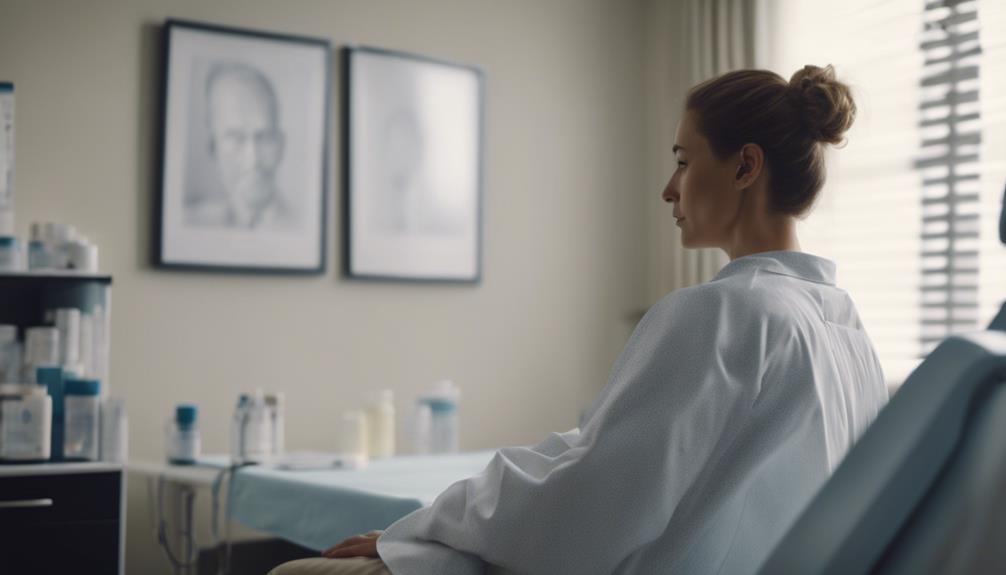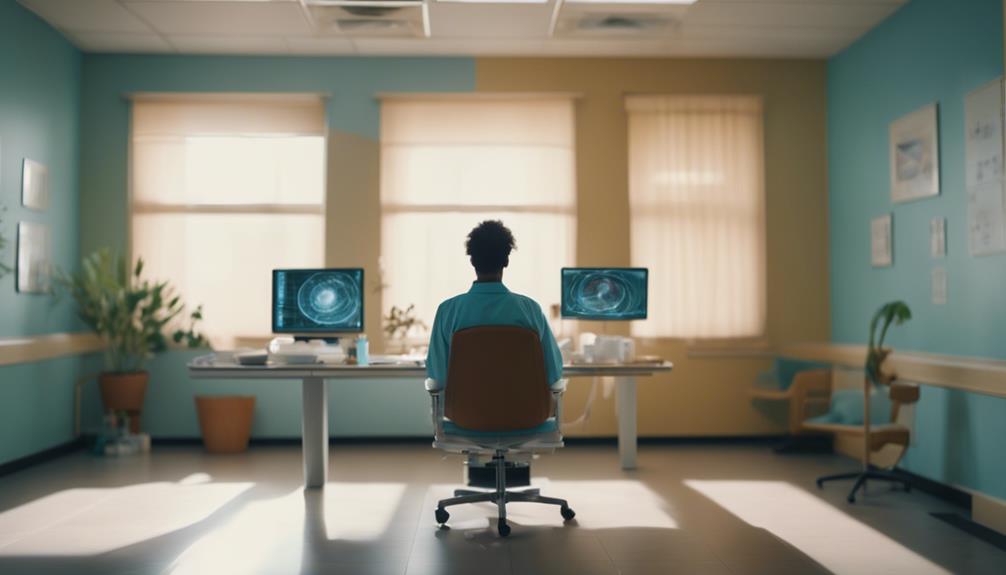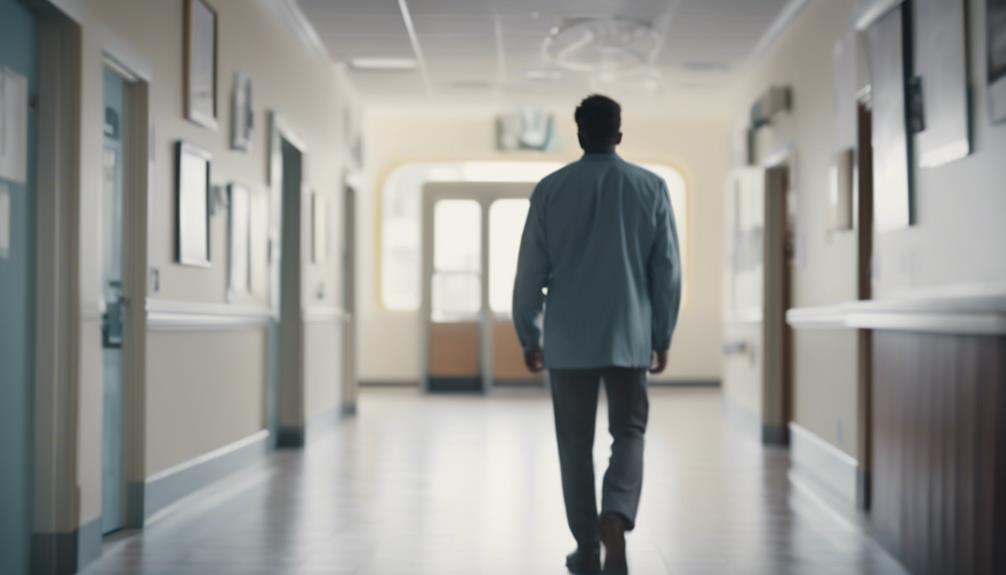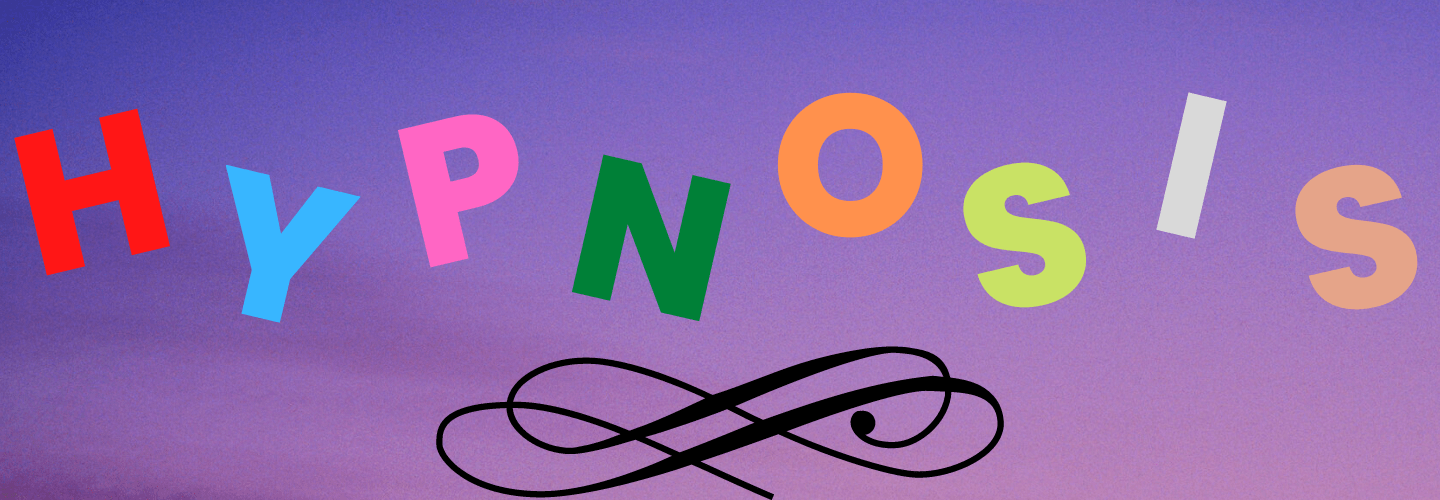
Hypnosis, EFT, and NLP offer holistic tools to overcome fear of doctors. These techniques explore the subconscious, introducing coping mechanisms and enhancing confidence, ultimately promoting emotional well-being. By addressing triggers and reframing perceptions, individuals can cultivate resilience and empower themselves in medical settings. This synergy aids in addressing fear on multiple levels, equipping individuals with lasting tools for managing anxiety. Resolving phobias involves a thorough approach that supports individuals in fostering confidence and well-being in medical environments.
Understanding the Fear of Doctors
Many individuals experience a deep-seated anxiety towards medical professionals, commonly known as the fear of doctors. This fear can originate from various sources, such as past negative experiences during medical visits, feelings of lacking control in medical settings, or the fear of being vulnerable in front of healthcare providers. Understanding these phobia triggers is essential in addressing and overcoming the fear of doctors.
Coping strategies play a significant role in managing this fear. Techniques such as deep breathing, visualization exercises, and gradual exposure to medical environments can help individuals gradually desensitize themselves to the anxiety-provoking stimuli associated with doctors. Additionally, seeking support from mental health professionals, engaging in relaxation techniques like meditation or yoga, and reframing negative thoughts through cognitive-behavioral therapy can also aid in coping with the fear of doctors.
Benefits of Hypnosis for Phobias

Individuals grappling with the fear of doctors may find that hypnosis offers a unique and effective approach in alleviating phobias. Hypnosis can be a powerful tool in fear management and phobia relief. Through hypnotherapy, individuals can access their subconscious mind to reframe negative associations with doctors, replacing them with positive and calming thoughts. By guiding patients into a deeply relaxed state, hypnosis allows them to confront their fears in a safe environment, enabling them to address underlying anxieties that contribute to their phobias.
One of the key benefits of hypnosis for phobias is its ability to help individuals develop coping mechanisms and relaxation techniques to manage fear and anxiety. By fostering a sense of control and empowerment, hypnotherapy can gradually diminish the intensity of phobias over time. Additionally, hypnosis can assist individuals in building confidence and resilience when faced with triggers related to their fear of doctors. Overall, hypnosis offers a holistic approach to addressing phobias, promoting emotional well-being and enhancing overall quality of life.
Using EFT to Address Anxiety

Addressing anxiety with EFT, also known as Emotional Freedom Techniques, involves tapping on specific points on the body to alleviate stress and promote a sense of calmness.
By using EFT techniques for anxiety, individuals can learn to manage their emotions and reduce the intensity of anxious feelings.
These practices aim to provide a tool for self-soothing and empowerment in moments of heightened anxiety.
Tapping for Anxiety
Effectively managing anxiety through the technique of tapping, also known as Emotional Freedom Technique (EFT), has shown promising results in assisting individuals in alleviating their emotional distress. Tapping techniques involve stimulating acupressure points on the body by gently tapping on them with fingertips. This process helps to rebalance the body's energy system, reducing anxiety levels effectively.
Here are three ways tapping can aid in anxiety relief:
- Calming the Mind: Tapping helps shift focus away from anxious thoughts, promoting relaxation.
- Releasing Tension: By tapping on specific points, physical tension associated with anxiety can be released.
- Promoting Emotional Well-being: EFT can help individuals process and release negative emotions, leading to a sense of calmness and peace.
EFT Techniques for Calmness
Utilizing EFT techniques can be a beneficial approach for cultivating a sense of calmness and addressing anxiety effectively. EFT, or Emotional Freedom Technique, involves tapping on specific meridian points while focusing on the issue at hand.
To promote relaxation, EFT incorporates calming visualizations that can help soothe the mind and body. By combining gentle tapping with reassuring mental imagery, individuals can experience a reduction in anxiety levels and a greater sense of inner peace.
Practicing EFT relaxation exercises regularly can enhance one's ability to manage stress and anxiety in various situations, including those involving doctor visits. This simple yet powerful technique offers a holistic way to promote emotional well-being and cultivate a state of calmness amidst life's challenges.
NLP Techniques for Fear Resolution

Harnessing the power of neuro-linguistic programming (NLP), individuals can effectively reframe their perceptions and responses to fear, enabling them to overcome deep-seated anxieties related to medical settings and procedures. NLP techniques offer a unique approach to fear resolution by delving into the subconscious mind and altering thought patterns.
Here are three key NLP techniques that can aid in resolving the fear of doctors:
- Anchoring: This technique involves associating a specific anchor, such as a touch or a word, with a positive emotion or state. By creating a positive anchor related to medical environments, individuals can trigger feelings of calmness and relaxation when faced with doctor visits.
- Visual Swish Pattern: By mentally replacing negative images associated with medical settings with positive and calming ones, individuals can rewire their responses to these situations, reducing fear and anxiety.
- Meta Model Techniques: Through careful language analysis and questioning, individuals can challenge and reframe their limiting beliefs and perceptions about doctors, fostering a more positive outlook and reducing fear.
Combining Hypnosis, EFT, and NLP

Merging the potent methods of hypnosis, EFT, and NLP can provide a thorough approach to overcoming fear, especially in medical environments.
By combining these modalities, individuals can access the advantages of each technique, generating a synergistic impact that deals with fear on various levels.
This holistic approach not only equips individuals with tools for handling fear but also fosters lasting emotional well-being.
Techniques for Overcoming Fear
By integrating hypnosis, EFT, and NLP techniques, individuals can effectively address and overcome their fear of doctors in a holistic and empowering manner.
When dealing with this fear, it is vital to utilize coping strategies and relaxation techniques to manage anxiety and stress.
Additionally, understanding the mind-body connection is key to adopting a holistic approach towards healing and overcoming deep-seated fears.
The synergy of these three powerful techniques can help individuals reframe negative thought patterns, release emotional blockages, and build self-confidence.
Through this integrative approach, individuals can gain a deeper insight into the root causes of their fear, enabling them to make lasting positive changes in their perception and experience of visiting doctors.
Benefits of Combined Therapies
Understanding the potential advantages of integrating hypnosis, EFT, and NLP techniques provides individuals with a thorough approach to addressing and overcoming their fear of doctors. By combining these modalities, individuals can tap into the mind-body connection, fostering a holistic approach to healing.
Hypnosis can help uncover and reframe subconscious beliefs, EFT can address specific fears through meridian tapping, while NLP offers strategies for changing thought patterns and behaviors. This integrative therapy allows for whole person healing, addressing mental, emotional, and physical aspects of the fear.
The synergy of these techniques creates a powerful toolset for individuals to navigate their fear of doctors confidently and effectively, ultimately leading to a more positive and empowered relationship with healthcare providers.
Overcoming Fear of Medical Environments

Moving through medical environments can evoke feelings of anxiety and unease for many individuals seeking care and treatment. When facing the fear of medical environments, understanding triggers and implementing coping strategies is essential for managing anxiety.
Here are some ways to overcome the fear of medical environments:
- Identify Triggers: Recognizing specific aspects of medical environments that trigger anxiety, such as medical equipment or the smell of disinfectants, can help individuals prepare mentally and emotionally.
- Practice Fear Desensitization: Gradual exposure to medical environments, starting from less intimidating settings like waiting rooms to more intense areas like examination rooms, can help desensitize individuals to their fears over time.
- Seek Support: Engaging with a therapist or support group specializing in anxiety disorders can provide valuable tools and techniques to navigate medical environments with confidence and ease.
Maintaining Confidence Post-Treatment

After completing medical treatment, maintaining a sense of self-assurance and empowerment is crucial for continued well-being and recovery. It's common for individuals who have faced medical challenges to experience a dip in confidence post-treatment, but there are strategies to help boost confidence and maintain a positive mindset.
Engaging in self-care practices is essential in nurturing a resilient and confident outlook. Regular exercise, healthy eating habits, and sufficient rest can contribute to physical well-being, which in turn has a positive impact on mental health.
In addition to physical self-care, nurturing emotional well-being is equally important. Practicing mindfulness, meditation, or relaxation techniques can help reduce feelings of anxiety and increase self-assurance. Surrounding oneself with a supportive network of friends and family members who offer encouragement and understanding can also provide a significant confidence boost.
Celebrating small victories and milestones in the recovery journey can further enhance self-confidence. Reflecting on the progress made and setting new goals can instill a sense of accomplishment and empowerment. By incorporating these self-care practices and fostering a positive mindset, individuals can maintain confidence post-treatment and continue on their path to overall well-being.
Frequently Asked Questions
Can Hypnosis, Eft, and NLP Be Used to Address Other Types of Phobias Besides the Fear of Doctors?
Anxiety management and stress reduction techniques like hypnosis, EFT, and NLP can effectively address various phobias beyond the fear of doctors. These modalities offer personalized approaches that can help individuals overcome fears and improve their overall well-being.
How Long Does It Typically Take to See Results When Using Hypnosis, Eft, and NLP for Phobia Resolution?
When addressing phobia progress, it's important to understand that the healing process varies for each individual. Expectations should be managed realistically, as results may manifest gradually. The time frame for noticeable changes can range from weeks to months, depending on the person.
Are There Any Potential Side Effects or Risks Associated With Using Hypnosis, Eft, and NLP for Fear Resolution?
When considering potential risks and side effects of therapeutic interventions, it is essential to weigh the benefits against any possible drawbacks. Understanding the effectiveness and duration of treatment can help individuals make informed decisions regarding their mental health care.
Can These Techniques Be Used in Conjunction With Traditional Therapy or Medication for Treating Phobias?
In the treatment of phobias, a holistic approach can involve a combination of traditional therapy, medication, and alternative techniques. Integrating these methods can provide all-encompassing care, addressing both psychological and physiological aspects for more effective results.
How Can Someone Find a Qualified Practitioner Who Specializes in Hypnosis, Eft, and NLP for Phobia Treatment?
When seeking a practitioner specializing in hypnosis, EFT, and NLP for phobia treatment, consider qualifications, experience, and client reviews. Verify their expertise in utilizing these techniques effectively. Look for a supportive and knowledgeable professional to address your fears.
Conclusion
In the vast landscape of the mind, hypnosis, EFT, and NLP stand as powerful tools to conquer the fear of doctors.
Imagine a serene lake, where your fears ripple away like gentle waves. Through these techniques, one can navigate the depths of their anxieties and emerge stronger and more confident.
By combining these modalities, individuals can access their potential for healing and step into medical environments with newfound courage and resilience.
Take the Next Step
Do not be afraid to reach out to me, Mark E Wilkins, to assist you in any issues you might have. Most Hypnotherapy sessions last 2 hours and EFT Sessions are usually handled with one session. Life Coaching is 45 minute session, once a week. Self-Hypnosis is taught in one session, and lasts a lifetime.
To make an appointment, first listen to the Pre-talk and fill out he Complementary Healthcare Provider Disclosure. The use the Contact Form to request an appointment with the Bohol Hypnosis Expert.
Self-help downloads are available. The self-hypnosis program to teach you how to self-hypnotize is here.





